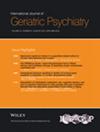Autism, Diagnostics, and Dementia: A Consensus Report From the 2nd International Summit on Intellectual Disabilities and Dementia
Abstract
Objectives
The second International Summit on Intellectual Disability and Dementia, held in 2023, highlighted the unique challenges of diagnosing dementia in older autistic adults, particularly those with intellectual disabilities, due to the complex interplay of cognitive, communicative, and behavioral factors. This article addresses key diagnostic issues and post-diagnostic considerations for this population.
Method
A consensus report was developed by the Summit's Autism/Dementia Working Group through background reviews, expert discussions at the Summit, and iterative draft revisions, incorporating feedback from internal and external stakeholders. Key issues were extracted from the report and abridged for this manuscript.
Results
Diagnostic challenges stem from overlapping symptoms of co-occurring neurodevelopmental and psychiatric conditions, rendering standard dementia tools insufficient. Comprehensive evaluations tailored to autism-related traits, sensory sensitivities, and alternative communication methods are essential. Building diagnostic capacity among clinicians and fostering multidisciplinary collaboration are critical. Longitudinal assessments, initiated before dementia symptoms appear, facilitate early detection of subtle changes. Emerging biomarkers and neuroimaging techniques show promise and should be incorporated where feasible. Accommodations, such as virtual assessments in familiar settings, can enhance diagnostic accuracy by reducing anxiety. Creating transition processes from diagnostics to post-diagnostic supports will aid in mitigating challenges and enhance life quality when dementia is a factor.
Conclusions
Research and clinician education are urgently needed to improve diagnostic approaches and streamline the transition from diagnosis to tailored post-diagnostic support. An integrated framework of comprehensive efforts is vital for our better understanding of age-associated neuropathological diagnostics and enabling long-term well-being of older autistic adults with dementia.

 求助内容:
求助内容: 应助结果提醒方式:
应助结果提醒方式:


